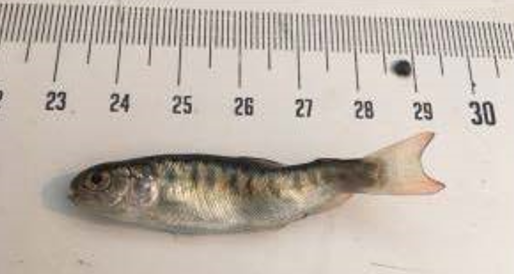Three trout samples taken from the southern arm of Kootenay Lake have tested positive for the parasite that causes whirling disease in juvenile fish.
Damage to the brain stem and spinal cord results in an erratic “whirling” swimming pattern.
These detections are the outcomes of enhanced whirling disease monitoring that the Province began earlier this year. This monitoring was done in partnership with First Nations, the Canadian Food and Inspections Agency (CFIA) and Parks Canada.
Kootenay Lake is one of the largest freshwater fisheries in B.C. and supports Gerrard rainbow trout and kokanee fisheries. These fish attract anglers from across North America.
It is unknown if there is any relation to detections in Yoho National Park, the site of the first confirmed detection of whirling disease in British Columbia. Provincial biologists are processing additional samples from the 2024 sampling season.
In response to these detections, B.C. will build on the actions taken, such as enforcing the new “Pull the Plug” regulatory requirements as part of the “Clean, Drain, Dry” decontamination program. In addition, B.C. is promoting the decontamination protocol and is further refining the provincial monitoring plan.
Is there a risk to humans?
Whirling disease is not a health risk for humans or pets.
Whirling disease is caused by a parasite, Myxobolus cerebralis, that attacks the head, spine and nervous tissue of fish. When infected fish die, spores carrying the parasite are released into the water and seek out aquatic worms (hosts) to repeat the cycle. The presence of the parasite does not necessarily mean that fish populations will be adversely affected.
Whirling disease affects juvenile salmonid fish, including Pacific salmon and trout. There is no treatment, therefore containment and prevention are the best responses.
Whirling disease is a federally reportable disease. The CFIA has been notified of this recent detection in Kootenay Lake. The Province will continue to work closely with First Nations, the CFIA and Parks Canada on a series of responses, while the remaining samples are processed.
Adopting the “Clean, Drain, Dry” approach for all boats and equipment, such as waders, life jackets and kayaks, will help prevent the spread of whirling disease, together with never moving fish or fish parts from one waterbody to another.
Be the first to know! Don’t miss out on breaking news and daily updates in your area. Sign up to MyKootenayNow News Alerts.






